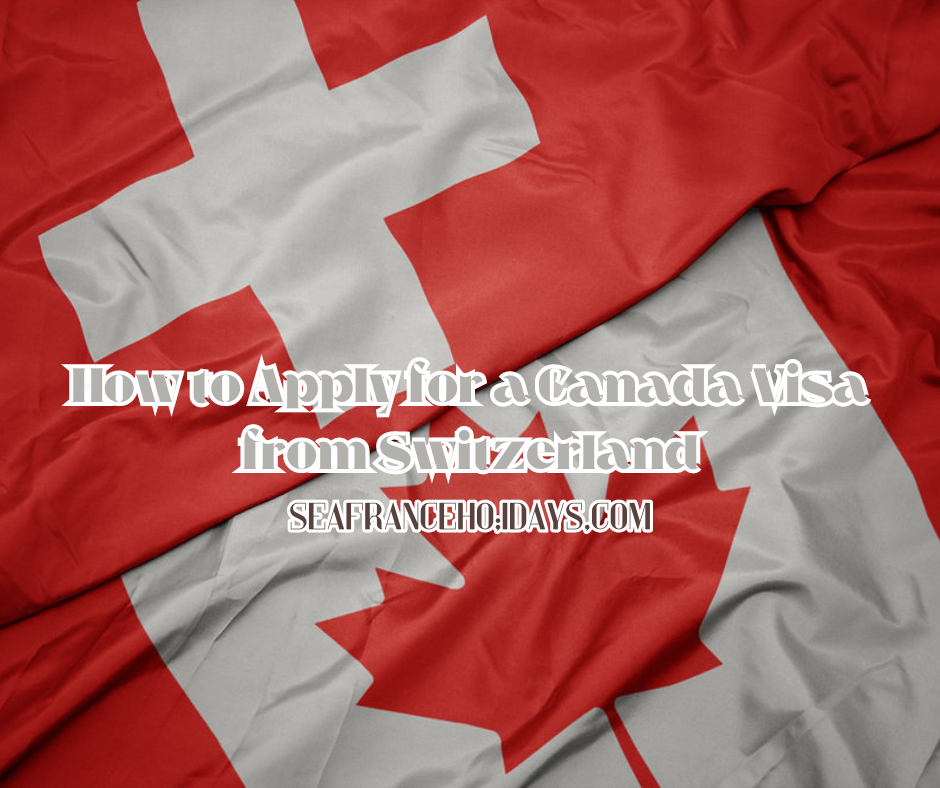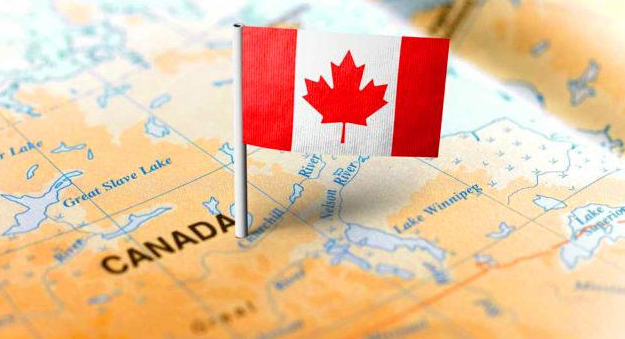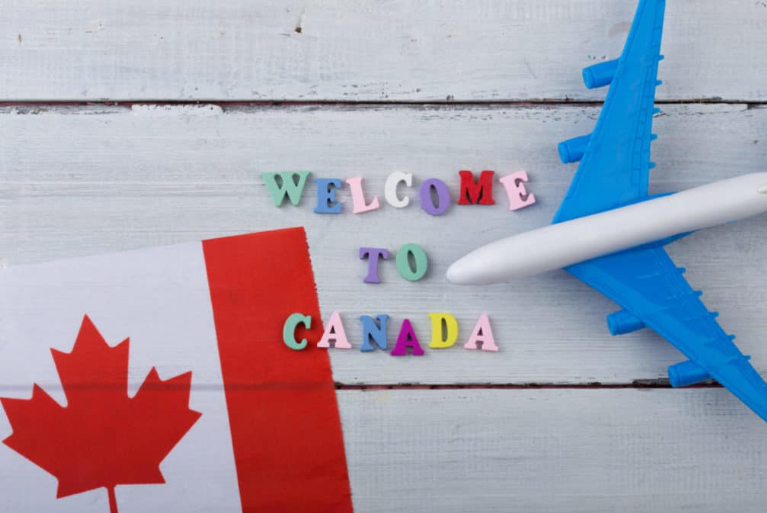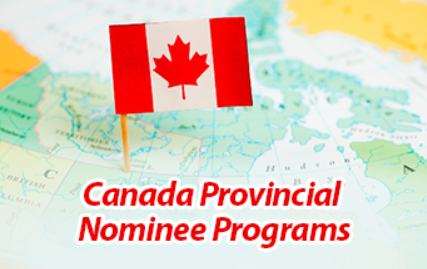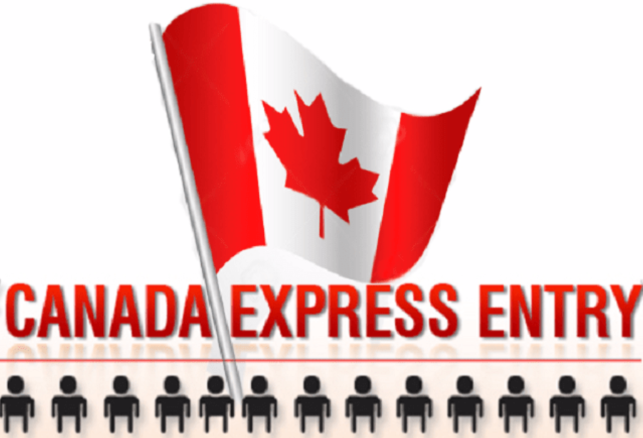Canada is a land of opportunity for immigrants. With its strong economy, welcoming culture, and beautiful natural scenery, Canada is a great place to start a new life. There are many different ways to immigrate to Canada, so you can find a program that fits your needs and qualifications.
In this article, we will discuss everything you need to know about Canada immigration. We will cover the different types of immigration programs, the application process, the cost of immigrating, and the settlement process. We will also provide tips on how to make your immigration journey as smooth as possible.
Whether you are looking to start a new career, raise a family, or simply experience a new culture, Canada is a great place to call home. So what are you waiting for? Start your immigration journey today!
What is Canada immigration?
Canada is a nation that embraces immigration and offers various programs to welcome individuals from diverse backgrounds. These programs aim to attract individuals possessing valuable skills, aspiring entrepreneurs, as well as family members of residents.
Why Immigrate to Canada?
There are numerous factors that influence individuals’ decision to immigrate to Canada. Among the frequent motives are:
- Canada offers abundant economic opportunities due to its thriving economy and minimal unemployment rate. As a result, immigrants have access to a wide array of job prospects.
- Canada is regarded as a secure, affluent, and hospitable nation, with a high quality of life. It boasts a superior living standard, along with exceptional healthcare and education systems.
- Canada is a nation of diversity, where individuals from various parts of the globe reside. As a result, immigrants have the opportunity to discover a community that meets their needs and offers a sense of belonging.
- In Canada, there is freedom and democracy where immigrants have the privilege to reside, labor, and pursue education. Additionally, they have the opportunity to engage in the political system.
- Canada offers a variety of immigration programs to individuals who are interested in moving to the country. There are several options available, each tailored to different circumstances and goals.
Canada has several immigration programs that are highly sought after. Some of the most widely recognized programs are:
- Express Entry is a system that utilizes a point-based approach to choose qualified individuals for permanent residency, specifically targeting skilled workers.
- Provincial Nominee Programs (PNPs) are initiatives administered by the provinces and territories of Canada with the aim of luring skilled workers to particular areas of the country.
- The family sponsorship program enables Canadian citizens and permanent residents to support their relatives in immigrating to Canada.
- The Start-up Visa Program was created with the intention of luring entrepreneurs to Canada.
- The Canadian Experience Class is an initiative aimed at bringing in talented individuals who have already gained work experience in Canada.
- The Self-employed Persons Program was created to entice self-employed individuals who can make a substantial impact on the Canadian economy.
- The Temporary Foreign Worker Program permits employers to engage foreign individuals for short-term job positions.
- Refugee and asylum programs: Canada offers various initiatives aimed at providing assistance to individuals seeking refugee status or asylum.
Canada is a popular destination for immigrants, and the Express Entry system is one of the main ways to immigrate to Canada. Express Entry is a points-based system that evaluates applicants based on their age, education, work experience, language skills, and other factors.
What is Canada Express Entry Immigration ?
Canada Express Entry Immigration is a system that manages applications for permanent residence in Canada under the following economic immigration programs:
Here is a comparison table of the Federal Skilled Worker Program (FSWP), the Federal Skilled Trades Program (FSTP), the Canadian Experience Class (CEC), and the Provincial Nominee Programs (PNPs):
Notes:
- The FSWP, FSTP, and CEC are all managed under the Express Entry system. This means that candidates are ranked in a pool based on their points score, and invitations to apply for permanent residence (PR) are issued periodically.
- The PNPs are managed by the individual provinces and territories. Each province has its own set of eligibility criteria and application process.
Which program is right for you will depend on your individual circumstances. If you are a skilled worker with Canadian work experience, the CEC is a good option. If you have skilled trade experience, the FSTP is a good option. If you do not have Canadian work experience, the FSWP is a good option. If you are interested in immigrating to a specific province, the PNPs are a good option.
How does Canada Express Entry Immigration work?
In order to participate in Express Entry, it is necessary to start by making a digital profile. This profile will be evaluated using a point system, resulting in a Comprehensive Ranking System (CRS) score. The higher this score is, the more likely you are to receive an invitation to apply for permanent residency.
Once you have created an online profile, you can start accumulating CRS points. You can earn points for factors such as your age, education, work experience, language skills, and whether you have a job offer in Canada.
How to apply for Canada Express Entry Immigration
To initiate the Express Entry process, the initial step is to establish an online profile, which can be done through the official Government of Canada website. After completing this profile, it is necessary to submit it along with the required application fee.
In the event that your profile is chosen, you will receive an invitation to apply for permanent residency. You will need to submit additional documentation, such as proof of your education, work experience, and language skills. You will also need to pass a medical exam and security clearance.
The Express Entry Points system
The Express Entry points system is used to assess applicants for permanent residence under the Express Entry system. The system evaluates applicants based on the following factors:
- Age: Applicants aged 18 to 35 receive the most points.
- Education: Applicants with a Canadian post-secondary degree receive the most points.
- Work experience: Applicants with skilled work experience in Canada receive the most points.
- Language skills: Applicants with high levels of English or French language skills receive the most points.
- Adaptability factors: Applicants with a job offer in Canada or who have relatives in Canada receive the most points.
- Your job offer: You will get more points if you have a valid job offer in Canada in a skilled occupation.
- Your provincial nomination: You will get more points if you have a provincial nomination from a Canadian province or territory.
The minimum CRS score required to be invited to apply for permanent residence varies depending on the number of applications received. However, the average CRS score has been around 470 in recent years.
Here is a comparison table of the Express Entry Points system:
The minimum CRS score required to be invited to apply for permanent residence through Express Entry varies from one round of invitations to the next. However, a score of 400 is unlikely to be enough to receive an invitation.
You can use the Comprehensive Ranking System (CRS) tool: https://www.cic.gc.ca/english/immigrate/skilled/crs-tool.asp to estimate your CRS score.
The Benefits of Applying to Canada Express Entry Immigration
There are many benefits to applying for permanent residence through Express Entry. These benefits include:
- A faster application process: The Express Entry system is designed to process applications more quickly than the previous system.
- A more transparent system: The Express Entry system is more transparent than the previous system, with clear criteria for assessing applicants.
- A more flexible system: The Express Entry system allows applicants to choose the province or territory where they want to live.
The Challenges of Canada Express Entry Immigration
There are also some challenges to applying for permanent residence through Express Entry. These challenges include:
- The high CRS score requirement: The CRS score requirement is relatively high, and it can be difficult to obtain enough points to be invited to apply for permanent residence.
- The competitive application pool: The Express Entry pool is very competitive, and there are often more qualified applicants than there are available spots.
- The high application fees: The application fees for Express Entry are relatively high.
Conclusion
Express Entry is a popular way to immigrate to Canada, and it offers many benefits to applicants. However, it is important to be aware of the challenges of the system before applying. If you are interested in immigrating to Canada through Express Entry, I recommend that you speak to an immigration lawyer or consultant to get more information.
Canada’s Provincial Nominee Programs (PNPs) are immigration programs that allow provinces and territories to nominate skilled workers, business people, and other immigrants who meet their specific economic and labor market needs.
PNPs are a great way to immigrate to Canada if you are interested in living and working in a particular province or territory. They offer a more direct pathway to permanent residence than the federal Express Entry system, and they can be a good option if you do not have a job offer in Canada.
How do The Provincial Nominee Programs PNPs work?
Each province and territory has its own PNP, and the requirements vary from program to program. However, most PNPs require that you have certain skills, education, and work experience that are in demand in the province or territory. You may also need to have a job offer or be willing to start your own business in the province or territory.
To apply for a PNP, you must first contact the province or territory that you are interested in immigrating to. They will assess your eligibility and let you know if you are eligible to apply. If you are eligible, you will need to submit an application form and provide supporting documentation.
The benefits of The Provincial Nominee Programs PNPs
There are many benefits to applying for a PNP, including:
- A more direct pathway to permanent residence: PNPs offer a more direct pathway to permanent residence than the federal Express Entry system. This means that you may be able to get permanent residence more quickly through a PNP.
- A greater chance of being nominated: The provinces and territories have a greater need for certain types of immigrants than the federal government does. This means that you may have a greater chance of being nominated for a PNP if you have the skills and experience that the province or territory is looking for.
- A chance to live and work in a specific province or territory: PNPs allow you to choose the province or territory where you want to live and work. This can be a great way to get to know a particular part of Canada and to find a job that is a good fit for you.
The different Types of The Provincial Nominee Programs PNPs
There are many different PNPs in Canada, each with its own eligibility requirements and application process. Some of the most popular PNPs include:
- The British Columbia Provincial Nominee Program (BC PNP): The BC PNP is one of the most popular PNPs in Canada. It offers a variety of streams for skilled workers, entrepreneurs, and international graduates.
- The Ontario Immigrant Nominee Program (OINP): The OINP is another popular PNP. It offers a variety of streams for skilled workers, entrepreneurs, and international students.
- The Alberta Immigrant Nominee Program (AINP): The AINP is a good option for skilled workers who want to live and work in Alberta. It offers a variety of streams, including the Express Entry Alberta stream.
- The Quebec Skilled Worker Program (QSWP): The QSWP is a popular PNP for skilled workers who want to live and work in Quebec. It is a points-based system, and you will need to score enough points to be eligible.
- The Nova Scotia Nominee Program (NSNP): The NSNP is a good option for skilled workers who want to live and work in Nova Scotia. It offers a variety of streams, including the Skilled Worker Stream and the International Graduate Stream.
Here is a comparison table of the different types of Provincial Nominee Programs (PNPs) in Canada:
The provides a brief introduction to the various PNPs available. The specific qualifications and advantages of each PNP will differ depending on the province or territory. For more detailed information, visit the respective websites of each province and territory.
How to Choose the Most Fitting Provincial Nominee Canada Immigration Program PNP
The best way to choose a PNP is to consider your skills, experience, and goals. You should also research the different provinces and territories to see which one is the best fit for you.
Once you have chosen a PNP, you can contact the province or territory to learn more about the application process and to get started.
Conclusion
The Provincial Nominee Programs are a great way to immigrate to Canada if you are interested in living and working in a particular province or territory. They offer a more direct pathway to permanent residence than the federal Express Entry system, and they can be a good option if you do not have a job offer in Canada.
If you are considering immigrating to Canada, I encourage you to learn more about the PNPs. They may be the perfect way for you to achieve your immigration goals.
Canada is a welcoming country that is open to immigrants and their families. The Family Sponsorship program allows Canadian citizens and permanent residents to sponsor their spouse, common-law partner, dependent children, parents, and grandparents to come to Canada as permanent residents.
Who Can Be Sponsored In That Canada Immigration Program?
The following family members can be sponsored under the Family Sponsorship program:
- Spouse or common-law partner
- Dependent children (under the age of 22)
- Parents and grandparents (over the age of 18)
How to Sponsor a Family Member To Immigrate To Canada
To be eligible to sponsor a family member for immigration to Canada:
- Be a Canadian citizen or permanent resident
- Have a valid Canadian address
- Meet the income requirements
- Be able to provide for the basic needs of your sponsored family member(s)
The application process for family sponsorship can be complex, so it is important to carefully read the instructions and gather all of the required documentation. You can find more information about the application process on the website of Immigration, Refugees and Citizenship Canada (IRCC).
The Benefits of Family Sponsorship Immigration Program
There are many benefits to sponsoring a family member to come to Canada. These benefits include:
- The opportunity to reunite with your loved ones
- The ability to help your family member build a better life in Canada
- The contribution that your family member can make to the Canadian economy and society
The Challenges of Canada Immigration Family Sponsorship Program
The Family Sponsorship program is a popular one, and there is a high demand for sponsorships. This means that the application process can be competitive, and it may take some time for your application to be processed.
Another challenge of family sponsorship is the financial commitment. The sponsor is responsible for providing for the basic needs of their sponsored family member(s) for a period of time. This can be a significant financial burden, especially if the sponsored family member is unable to work immediately.
The Future of Family Sponsorship
The Family Sponsorship program is an important part of Canada’s immigration system. It allows Canadian citizens and permanent residents to reunite with their loved ones and build a better life in Canada. The program is likely to remain in place in the future, but it is possible that the requirements may change.
Here is a comparison table of the Canada Immigration Family Sponsorship Program:
Conclusion
The Family Sponsorship program is a great way to bring your family to Canada. If you are considering sponsoring a family member, be sure to do your research and understand the requirements. With careful planning, you can help your loved ones build a better life in Canada.
Other Canada immigration programs
In addition to the Express Entry and Provincial Nominee Programs, there are a number of other Canada immigration programs that you may be eligible for. These include:
This program is designed to attract foreign entrepreneurs who have the potential to create jobs and economic growth in Canada. To be eligible, you must have a business plan that has been approved by a designated Canadian organization, and you must have sufficient funds to support yourself and your family during the first year in Canada.
- The Canadian Experience Class:
This program is intended for non-native workers who have acquired previous work experience in Canada. To be eligible, you must have at least 1 year of full-time skilled work experience in Canada, and you must meet certain language and education requirements.
This program is designed for foreign nationals who are self-employed in a creative or artistic field. To be eligible, you must have a proven track record of self-employment, and you must have the intention of continuing to be self-employed in Canada.
This program permits Canadian employers to employ foreign workers to address temporary labor scarcity. There are a number of different streams under the Temporary Foreign Worker Program, each with its own eligibility requirements.
- The refugee and asylum programs:
These programs allow people who are fleeing persecution or danger in their home country to come to Canada as refugees or asylum seekers. To be eligible, you must meet certain criteria, such as demonstrating a fear of persecution in your home country.
Each of these programs has its own eligibility requirements, so it is important to carefully review the requirements for the program that you are interested in. You can find more information about each program on the website of Immigration, Refugees and Citizenship Canada (IRCC).
Here is a comparison table of the Start-up Visa Program, the Canadian Experience Class, the Self-employed Persons Program, the Temporary Foreign Worker Program, and the refugee and asylum programs:
How to Choose the Right Canada Immigration Program
The best way to choose the right Canada immigration program for you is to carefully consider your individual circumstances and goals. Some factors to consider include your skills and experience, your financial situation, your family situation, and your reasons for wanting to immigrate to Canada.
- If you are a skilled worker, you may be eligible for the Express Entry or the Canadian Experience Class programs.
- If you are self-employed, you may be eligible for the Self-employed Persons Program.
- If you are looking to start a business in Canada, you may be eligible for the Start-up Visa Program.
- If you are fleeing persecution or danger in your home country, you may be eligible for the refugee or asylum programs.
It is also important to consider the application process and the cost of each program. The application process for some programs can be lengthy and complex, and the cost of the application fees can vary.
Once you have considered all of these factors, you can start to narrow down your choices and choose the Canada immigration program that is right for you.
Here is a comparison table of the different types of Canada immigration programs:
The Application Process for Canada Immigration
The application process for Canada immigration can vary depending on the program that you are applying for.
Many immigrants from around the globe are attracted to Canada as a desirable place to settle. The nation provides an excellent quality of life, a friendly community, and a wide range of immigration options to select from.
The application process for Canada immigration can be complex, but it is important to follow the steps carefully to ensure that your application is successful.
Here is an overview of the process:
-
Choose an immigration program. The first step is to choose an immigration program that you are eligible for. There are many different programs available, each with its own requirements. Liste next some of the most popular programs include:
- Express Entry: This is the main immigration system for skilled workers, professionals, and entrepreneurs.
- Provincial Nominee Programs (PNPs): These programs are designed to attract immigrants to specific provinces or territories.
- Family sponsorship: Canadian citizens and permanent residents are given the opportunity to sponsor their family members for immigration through this program.
- The Start-up Visa Program: This program is for entrepreneurs who want to start or buy a business in Canada.
- The Canadian Experience Class: This program is for temporary foreign workers who have gained Canadian work experience.
-
Meet the requirements. Once you have chosen an immigration program, you need to make sure that you meet the requirements. These requirements vary from program to program, but they may include things like age, education, work experience, language skills, and financial resources.
-
Gather the required documentation. You will need to gather the required documentation for your application. This documentation may include things like your passport, birth certificate, educational transcripts, work experience letters, and language test results.
-
Submit your application. After collecting all the necessary paperwork, you have the option to submit your application either online or through the mail.
-
Wait for a decision. The processing time for Canada immigration applications varies from program to program. It can take several months or even years to receive a decision.
-
Land in Canada. If your application is approved, you will be issued a visa or permanent resident card. You can then land in Canada and start your new life.
Here is a comparison table of the application process for Canada immigration:
Here are some additional tips for a successful Canada immigration application:
- Start early. The application process can take several months or even years, so it is important to start early.
- Be organized. Ensure that you maintain a record of all your paperwork and documentation.
- Verify every detail and ensure that your application is both thorough and precise.
- Get help from a professional. If you are not sure how to apply for Canada immigration, you can get help from an immigration lawyer or consultant.
- Gather all of the required documentation. Make sure you have all of the required documentation, such as educational transcripts, language test results, and work experience certificates.
- Be prepared to pay the application fees. There are application fees for all of the Canada immigration programs.
- Be patient. The application process can be long and complex, so it is important to be patient.
Conclusion
The application process for Canada immigration can be daunting, but it is important to remember that there are many resources available to help you. The Canadian government has a website with information on all of the different immigration programs. There are also many immigration lawyers and consultants who can help you with your application.
If you are considering immigrating to Canada, I encourage you to do your research and start the application process. Canada offers an ideal environment for individuals to reside, be employed, and nurture their loved ones.
The Cost of Canada Immigration
Immigrating to Canada can be a costly endeavor, but the exact cost will vary depending on your individual circumstances. Here is a breakdown of some of the common costs associated with immigration to Canada:
- Application fees: The application fees for Canadian immigration can vary depending on the program you are applying for. For example, the application fee for the Express Entry system is CAD$1,325 for the principal applicant and CAD$150 for each dependent.
- Visa and processing fees: In addition to the application fees, you may also need to pay visa and processing fees. These fees are charged by the government of Canada and can vary depending on your nationality.
- Travel costs: The cost of travel to Canada will vary depending on your point of origin. However, you should budget at least CAD$1,000 for airfare and other travel expenses.
- Living costs: The cost of living in Canada can vary depending on the city or province you choose to live in. However, you should budget at least CAD$1,500 per month for living expenses.
- Language training: If you do not already speak English or French, you may need to take language training courses. The cost of language training can vary depending on the program you choose.
- Other costs: There may be other costs associated with immigration to Canada, such as medical examinations, biometrics fees, and legal fees.
Here is a comparison table of the costs associated with immigrating to Canada, in Canadian dollars (CAD):
The total cost of immigrating to Canada will vary depending on the program you apply for, the number of family members you are sponsoring, and the additional costs you may incur, such as translation and legal fees.
Here are some additional costs to consider when immigrating to Canada:
- Language testing: CAD$200-500 per test
- Medical examinations: CAD$200-500
- Travel expenses: CAD$1,000-2,000
- Temporary accommodation: CAD$1,000-2,000 per month
- Living expenses: CAD$2,000-3,000 per month
It is important to budget for all of these costs when planning your immigration to Canada. You can find more information about the costs of immigrating to Canada on the website of the Canadian government.
Here are some additional tips for reducing the cost of immigration to Canada:
- Apply for a program that has lower processing fees.
- Apply with your family members.
- Do your own research and avoid using a visa consultant.
- Apply early to avoid last-minute rush fees.
- Do your research and compare different immigration programs.
- Apply for the program that best suits your skills and experience.
- Start the application process early.
- Gather all of the required documentation as early as possible.
- Work with an immigration lawyer or consultant who can help you navigate the process.
Immigrating to Canada can be a costly process, but it is also an investment in your future. By carefully planning and budgeting, you can reduce the financial burden of immigrating to Canada and make your dream of living in Canada a reality.
By following these tips, you can reduce the cost of immigration to Canada and make the process as smooth as possible.
Conclusion
The total cost of immigration to Canada can be significant, but there are a number of ways to reduce the costs. For example, you may be eligible for a reduction in the application fees if you are sponsored by a family member or employer. You can also save money by traveling to Canada during the off-season or by living in a less expensive city or province.
If you are considering immigrating to Canada, it is important to factor in the costs involved. However, the benefits of living in Canada can outweigh the costs, especially if you are looking for a safe, prosperous, and welcoming country to call home.
The settlement process in Canada
The settlement process is the process of adjusting to life in a new country. For immigrants to Canada, this can be a daunting task, but there are many resources available to help make the transition easier.
Settling in Canada
Once you have arrived in Canada, you will need to start the process of settling in. This encompasses the tasks of securing accommodation, finding employment, and familiarizing oneself with Canadian customs and traditions.
There are a number of government programs and services that can help you with the settlement process. You can find more information on the website of IRCC.
The first step in the settlement process is to find a place to live. There are a variety of housing options available to immigrants, including apartments, houses, and condos. The cost of housing will vary depending on the city or town you choose to live in.
Once you have found a place to live, you can start looking for a job. There are many different job boards and websites that can help you find employment in Canada. You can also contact local businesses and organizations to inquire about job openings.
Learning about Canadian culture is an important part of the settlement process. This will help you understand the customs and values of the country and make it easier to adjust to your new home. There are many resources available to help you learn about Canadian culture, including books, websites, and cultural events.
Becoming a Canadian citizen is the ultimate goal for many immigrants. This gives you the right to vote, run for office, and sponsor family members for immigration. There are a few requirements that you must meet in order to become a Canadian citizen, including living in Canada for a certain amount of time and passing a citizenship test.
Here is a comparison table of the settlement process in Canada after arriving as a newcomer immigrant:
Here are some additional tips for newcomers to Canada:
- Do your research before you arrive. Learn about Canadian culture, customs, and laws.
- Be patient and adaptable. Adapting to a new country requires a certain amount of time.
- Don’t be afraid to ask for help. There are many resources available to help newcomers succeed in Canada.
I hope this information is helpful. Please let us know in the comment section below if you have any other questions.
Finding a Place to Live in Canada
When you first arrive in Canada, you may need to stay in temporary housing until you find a permanent place to live. There are a few different options for temporary housing, including:
- Airbnb: Airbnb is a popular website that allows you to rent out rooms or entire homes from local hosts. This can be a great way to get to know the city and find a permanent place to live.
- Hotels: Hotels can be expensive, but they offer a comfortable and convenient option for temporary housing.
- Hostels: Hostels are a more affordable option for temporary housing. They offer shared rooms and bathrooms, and they are a great way to meet other travelers.
Once you have found a permanent place to live, you will need to decide whether to rent or buy a home. Both options have advantages and disadvantages. Renting is a more affordable option, but you will not build any equity in your home. Buying a home is a more expensive option, but it can be a good investment in the long run.
The job market in Canada is strong, and there are many opportunities for immigrants. The most important thing is to have the right skills and qualifications for the jobs you are applying for. You can also improve your chances of getting a job by networking with people in your field and attending job fairs.
When you are applying for jobs, it is important to tailor your resume and cover letter to each specific job. You should also be prepared to answer questions about your immigration status and why you want to work in Canada.
Canadian culture is a diverse mix of European, Indigenous, and immigrant cultures. There are many different ways to learn about Canadian culture, including:
- Reading books and articles about Canadian history and culture.
- Visiting museums and historical sites.
- Participating in cultural gatherings like festivals and music performances.
- Making friends with Canadians and learning about their experiences.
Becoming a Canadian citizen is a major milestone in the settlement process. It gives you the right to vote, run for office, and sponsor family members for immigration. There are a few requirements that you must meet in order to become a Canadian citizen, including:
- Residing in Canada for a specific duration.
- Passing a citizenship test.
- Being able to speak and understand basic English or French.
The citizenship test is a multiple-choice test that tests your knowledge of Canadian history, government, and culture. You can take the test in either English or French.
If you meet all of the requirements, you can apply for Canadian citizenship. The application process can take several months, but it is well worth it to become a Canadian citizen.
At The End
The process of moving to Canada can be daunting, but it is definitely possible with careful planning and preparation. The first step is to research the different immigration programs available and choose one that is right for you. Once you have chosen a program, you will need to gather all of the required documentation and meet the eligibility requirements. The application process can take several months or even years, so it is important to be patient and persistent.
If you are serious about moving to Canada, I encourage you to do your research and start the application process early. With a little hard work and dedication, you can achieve your dream of living in Canada.
